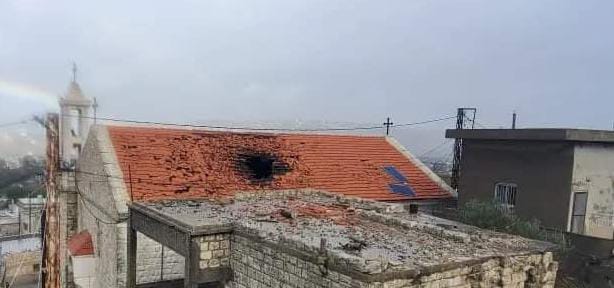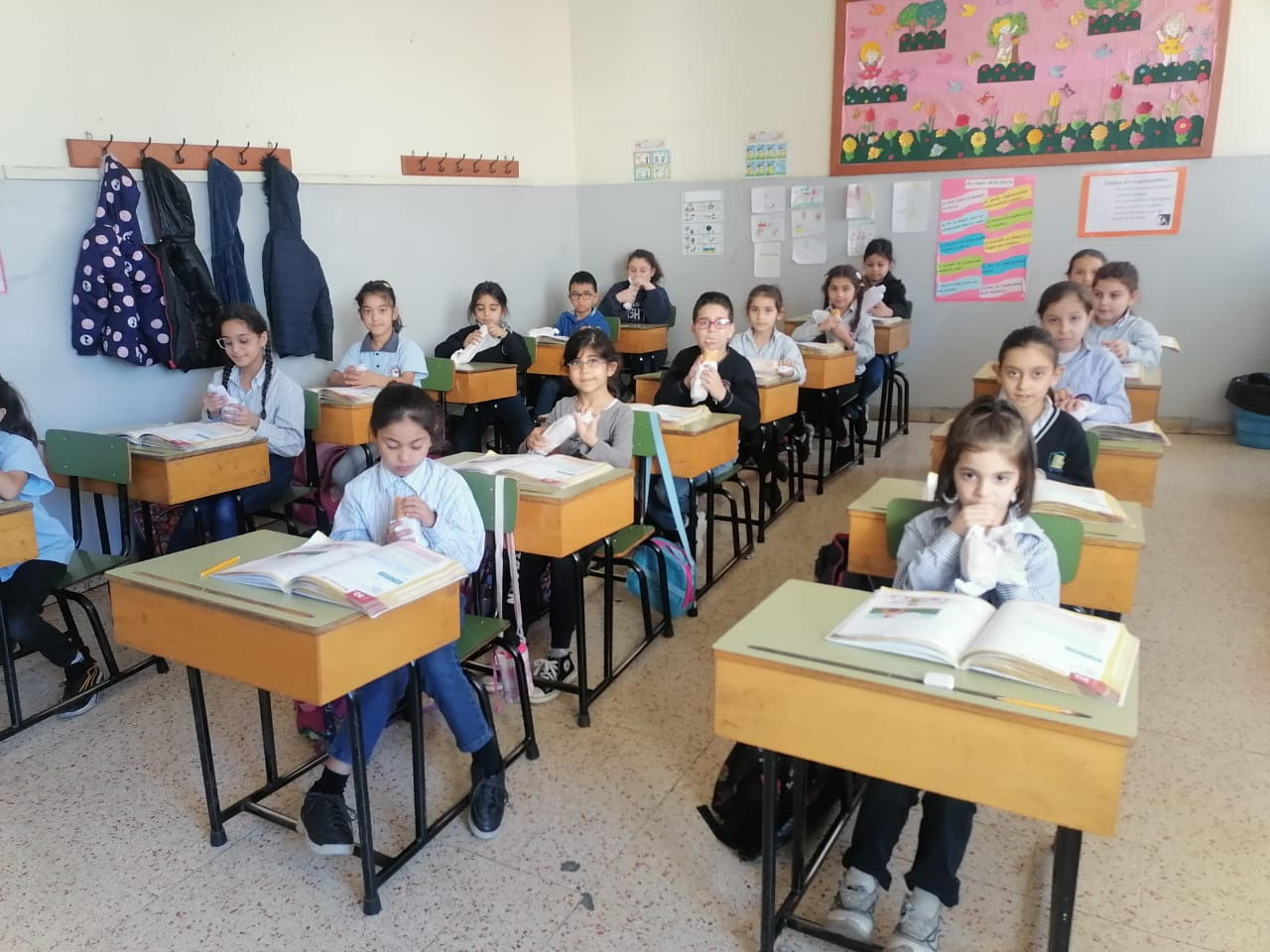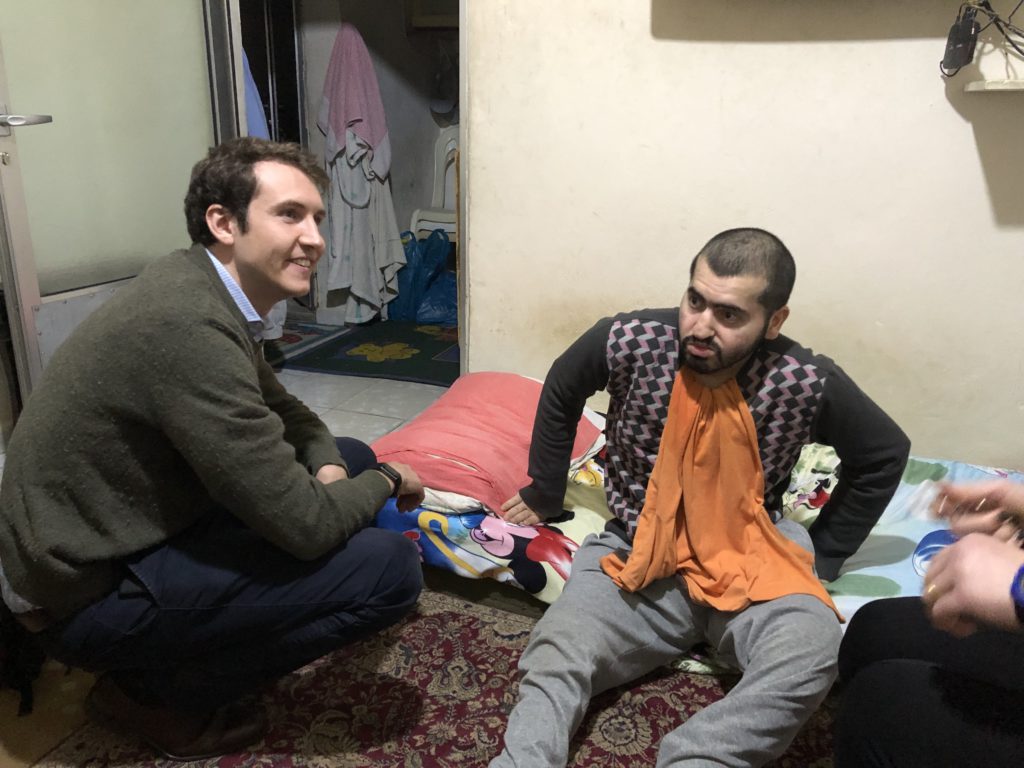While many Christian families have fled to safer areas, priests and religious stay to minister to those who remain to look after their homes, or who are too old or frail to relocate. ACN is helping with food packages and medical assistance, as well as access to online education for students in Catholic schools in the area.
According to data collected by Aid to the Church in Need (ACN) in Lebanon, up to 90% of the population of several Christian villages has left since October, seeking safety in other parts of the country. While some have since gone back, without long-term shelter options in Beirut, these returns seem to have slowed for the moment.
Since the beginning of the military operation against Hamas, in the Gaza Strip, Israel and Hezbollah have been exchanging near daily rocket fire in the south of Lebanon. The fear of a return to war in southern Lebanon brings back memories of the 2006 War, and, local religious leaders say, is a threat to the historic Christian presence in the region.
They describe Alma el Chaeb as the worst affected village so far, where 15 houses were destroyed by rocket fire, and members of a family with children attending the Catholic school in the village were killed. In Yaroun the Melkite Catholic Church was damaged, although fortunately nobody was wounded.

Empty streets
“The bombing is still happening daily. The streets are very quiet: you don’t see the usual sight of men drinking coffee on stools and children playing football. People are too afraid to go into their fields, so there is an economic impact on these families, many of whom are already poor as a result of Lebanon’s ongoing financial collapse,” said Xavier Stephen Bisits, who is responsible for ACN projects in the region and made a recent field visit to the area.
ACN has approved an emergency package for affected Catholic schools in the region, which have had to scale back activities and shift to online teaching. “Keeping institutions running at this point is critical. People are thankful for that,” said Bisits.
In some locations entire families have left, leaving behind only one young man to look after the property and guard it from theft, but fortunately, other villages and cities have been less affected. Life in Tyr, an important city with a significant Christian community, remains relatively normal, for example.

Church remains steadfast
While many civilians have relocated to relative’s houses in Beirut, or other safe havens, the clergy and religious who serve the Christian community are remaining in place. Not a single priest, local sources say, has abandoned his flock. Recently, the bishops of the Maronite and Melkite Churches even travelled to the locations closest to the border with Israel, to celebrate the Eucharist and see the situation for themselves.
“The Maronite Bishop of Tyr recently celebrated Mass in the village of Rmeich, under threat of bombs. It is a testament to the solid faith and resilience of the people in this region. The Melkite bishop of Tyr also went on a tour to check on the faithful in the villages along the border. He was clearly affected by the haunting emptiness he witnessed in Yaroun, where only a few young men remain, watching over the houses, including a blind man who cannot bear to leave”, says ACN’s Xavier Bisits.
Another concern is the elderly, who are too frail to make long trips to safety. In this case, the Sisters of the Sacred Hearts of Jesus and Mary, in Debel, have taken to gathering and protecting them in their convent whenever the threat of bombings increases.
In Beirut, where it is safe, many Christian families have opened their doors to those who fled the south. Homes that used to hold one family, now house up to three, putting a strain on resources, psychological health and hygiene, and the local Churches and religious congregations are trying to secure communal spaces to provide for more internally displaced in case the situation worsens.
“Besides the immediate risk to lives and property, there is also the fact that agricultural fields are being damaged. Olives and tobacco are an important source of income for the local communities, but farming – and in the case of olives, harvesting – has stalled because people are afraid to go out to their fields”, says Xavier Bisits.
Fear of a return to war
All this is taking place against a backdrop of political and financial crisis. “The situation is disturbing. Conversations are dominated by the fear of a return to war. The lack of official leadership to provide guidance or assurance is worrying. People want stability, an end to the uncertainty, and their lives to be ‘normal’ again”, says Xavier Bisits. “A recurring message we hear from most local people is that Lebanon does not want another war. To a certain extent, however, they feel that it is not a decision that will come down to them.”
Since the beginning of the military operation against Hamas in the Gaza Strip, tension has also risen between Israel and Hezbollah, the Iran-backed paramilitary group that operates out of Lebanon. According to international media, the violence, which has largely been contained to the border area, has killed more than 130 people in Lebanon, including 94 Hezbollah fighters and 17 civilians. In Israel, the hostilities have killed eight soldiers and four civilians. Although most of Israel’s strikes have been against Hezbollah targets, which tend to be placed in Shiite areas, some Christian villages have also been affected.
This is not the first time that Christians have to deal with displacement and relocation in this region. Christians used to be a majority in large parts of the south of Lebanon, but have been leaving the area over the past decades due to the civil war and fighting with Israel, leading to it becoming a Shiite stronghold.
ACN has approved a number of emergency projects to support the Church in southern Lebanon, including food packages, medical and social assistance, operational aid for Catholic schools, equipment for a Catholic dispensary, and the distribution of hygiene necessities. ACN is partnering with the local Maronite and Melkite Churches, as well as the the Sisters of the Sacred Hearts of Jesus and Mary.


